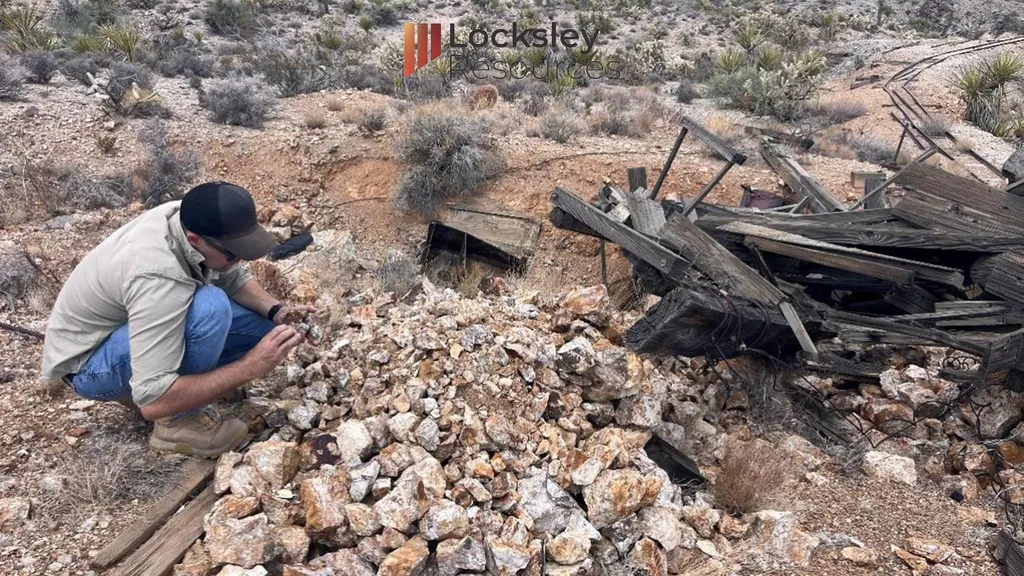Locksley Resources Ltd has formalised a research collaboration with Columbia University, a leading U.S. institution in sustainable mineral processing, to advance next-generation recovery and separation of Rare Earth Elements (REEs) and other critical metals from geologic resources in California’s Mountain Pass region. This partnership marks a significant step in Locksley’s strategy to develop advanced, sustainable processing technologies for critical minerals, complementing its existing green DeepSolv(TM) antimony processing partnership with Rice University.
The collaboration will focus on integrating AI-driven ore characterisation, innovative electrochemical recovery, and CO2-assisted mineral processing to address the limitations of traditional, non-U.S. processing methods. Professor Greeshma Gadikota, Director of the Lenfest Centre for Sustainable Energy at Columbia University and Principal Investigator for the project, expressed enthusiasm about the collaboration. “Our team is excited to collaborate with Locksley Resources on developing scalable, low-impact pathways for rare earth recovery. The combination of advanced electrochemical science, AI-assisted resource mapping, and industry-aligned pilot design offers a transformative route toward sustainable critical minerals production in the U.S.,” she said.
The research program will be conducted in three principal aims: characterisation of ores, technology development, and field deployment strategy. The project aims to achieve over 80% dissolution efficiency using tuneable electrochemical and CO2-assisted leaching systems, followed by pH-swing and sorbent-based selective recovery of REEs and co-metals. Additionally, the collaboration will utilise AI-enabled ore mapping and low-impact mining technologies to evaluate novel “Mines of the Future” concepts under active U.S. Department of Energy (DOE) and ARPA-E frameworks.
Locksley will advance project funding of US$150,000 over the next 12 months to support the development of the intellectual property under the Agreement. This collaboration expands Locksley’s established U.S. technology platform, broadening the company’s U.S. university partnerships to encompass both antimony and rare earth elements, two critical minerals central to American supply chain independence.
The strategic importance of this collaboration is further strengthened by the recent DOE’s US$355 million funding announcement supporting domestic critical minerals production, sustainable mining technologies, and pilot-scale processing development. Many of Columbia’s program key research workstreams, including electrochemical extraction, AI-enabled ore mapping, and Techno-Economic Assessment (TEA)/Life-Cycle Analysis (LCA) frameworks, are directly aligned with the objectives of the DOE initiatives.
Kerrie Matthews, Locksley Chief Executive Officer, commented on the significance of the collaboration. “This collaboration with Columbia University expands our U.S. research partnerships into rare earths, complementing our DeepSolv(TM) DES work with Rice University on antimony. Together, these programs significantly strengthen the technical foundation of our U.S. mine-to-market strategy and broaden our exposure to emerging American-developed processing technologies. The alignment of this work with current U.S. Government priorities, including the DOE’s recent US$355 million funding initiatives, enhances our ability to engage with suitable programs as we progress towards pilot-scale development. This represents an important step in supporting domestic supply chains for minerals that are essential to defence, electrification, and advanced manufacturing.”
The collaboration now moves into its implementation phase, with several near-term activities scheduled to initiate the technical and commercial workstreams. These include the shipment of ore and concentrate samples from the Mojave Project to Columbia for advanced mineralogical and electrochemical analysis, the first governance meeting between Locksley and Columbia’s research team, and joint preparation of applications for suitable DOE and DoW funding initiatives under ARPA-E and Mines of the Future initiatives.
This partnership could significantly shape the development of the mining sector by advancing sustainable and innovative processing technologies for critical minerals. The integration of AI-driven ore characterisation and electrochemical recovery methods could set new standards for efficiency and environmental sustainability in mineral processing. Furthermore, the alignment of this research with U.S. government priorities and funding initiatives could accelerate the development and deployment of these technologies, potentially leading to a more robust and secure domestic supply chain for critical minerals.
The collaboration between Locksley Resources and Columbia University highlights the growing importance of strategic partnerships between industry and academia in driving innovation and technological advancement in the mining sector. As the demand for critical minerals continues to rise, driven by the transition to clean energy and advanced manufacturing, such collaborations will be crucial in developing sustainable and efficient processing technologies to meet these demands.

